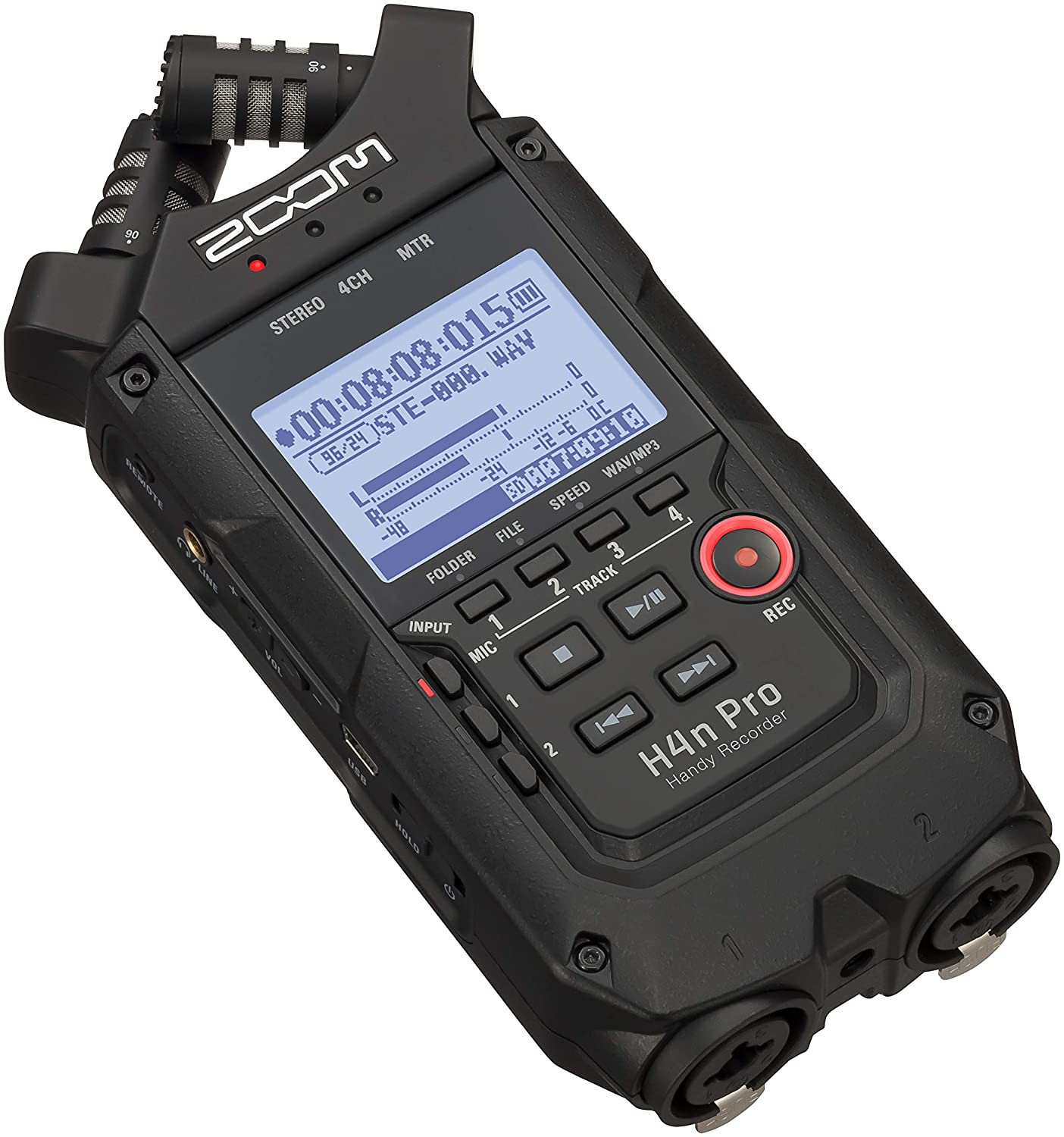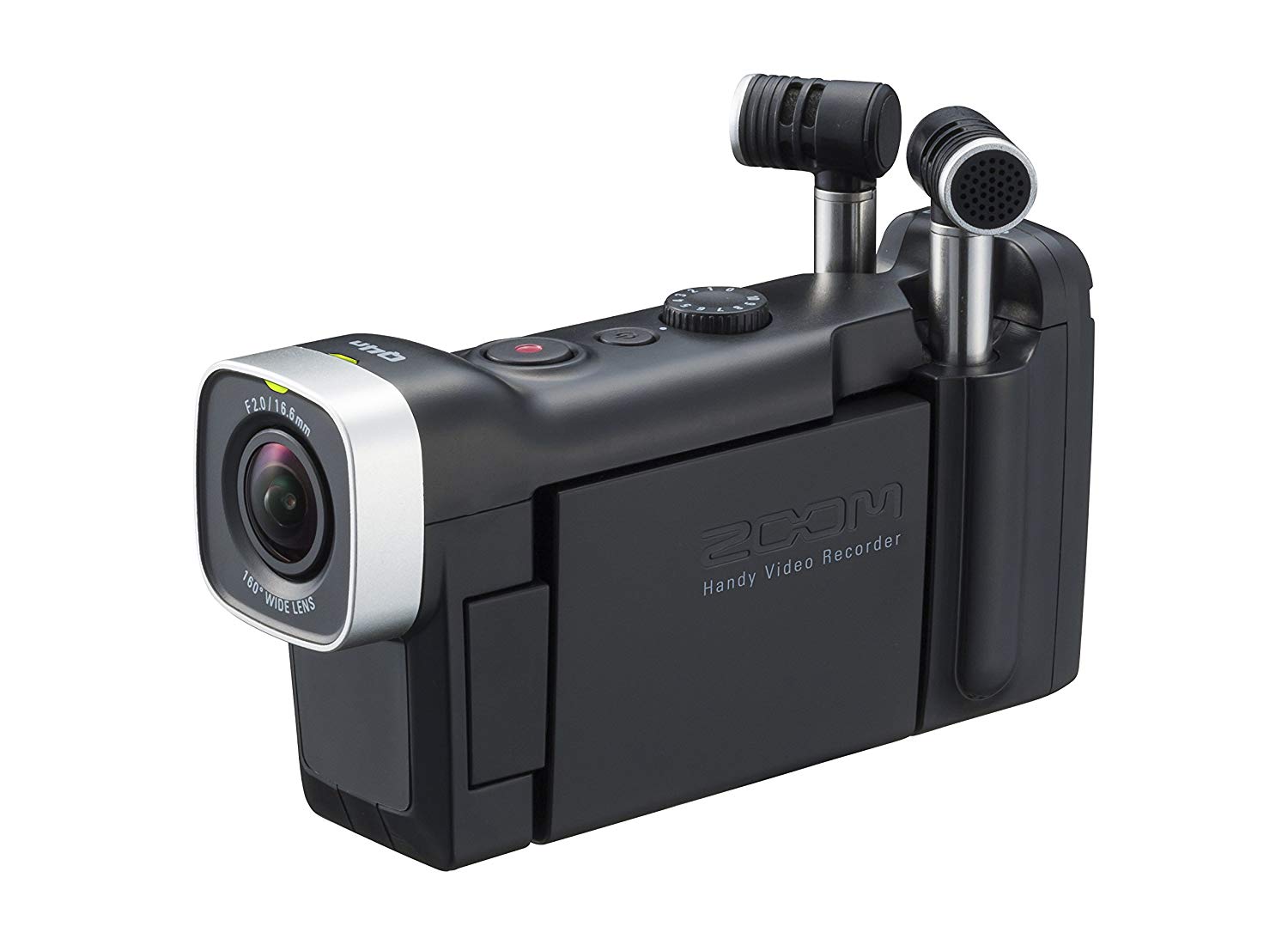“Keen self-listening is central to musical excellence.”
–The Musician’s Way, p. 16
Without the ability to hear ourselves precisely, we can’t perform to professional standards nor solve problems in practice.
Fortunately, today’s digital recorders empower us musicians to appraise our work accurately and objectively.
This post sums up 5 main benefits of self-recording and highlights some of the best digital recorders on the market. [Updated May 2020]
Five Benefits of Self-Recording for Musicians
1. Sharpens Musicianship
Recording sharpens our musicianship in that we can gauge every facet of our playing or singing with an impartial ear.
Whether we record a single phrase in a practice room or a full-length concert performance, we can stand back and listen as if someone else had produced the music.
We can then refine our sound and execution in line with our insights.
2. Prevents Distorted Perception
Self-recording prevents distorted perception because we’re able to evaluate our work without any interference from the actions of generating the music.
For example, if your intonation unwittingly drifted during a thorny phrase, you would hear the flaw on
Also, for many musicians, especially vocalists, their self-perceived tone quality necessarily differs from what their audiences hear. A recorder enables us to perceive how we actually sound to our listeners.
3. Heightens Practice Efficiency
Self-recording heightens efficiency in practice by not only thwarting distorted perception but also boosting accuracy.
If you’ve ever realized at a rehearsal or lesson that you had practiced a passage wrongly, then you know how wasteful inaccurate practice can be.
Self-recording, combined with acute listening, helps us be precise from the start.
4. Enhances Lessons
Recording lessons and coachings enhances our learning because, following sessions, we can review and take notes.
Given that music instruction is so dynamic, along with the fact that there isn’t time to take many notes, self-recording ensures that none of the advice we receive is forgotten; it also frees us to focus on the tasks at hand without worrying that we might forget any instructions.
5. Promotes Objectivity
The last benefit I’ll cite is that, when we rehearse in groups, self-recording helps us appraise our work objectively and minimize conflict.
As an illustration, rather than debating whether someone was out of tune or too loud, group members can record excerpts and listen back to uncover faults.
Recommended portable recorders:
- Zoom H6. Extraordinary six-track recorder with 24 bit, 96K capability.
- Zoom H4n Pro. Outstanding sound quality & features. A musician favorite!
- Zoom H2n. A top option for self-study recording.
- Zoom Q4n. Handy for video & audio. HD camcorders at Amazon
- Tascam DR-22WL. A less-expensive but good-quality audio recorder.
Related posts
Deep Listening
Honest Practice
Practicing for Recording Sessions
Self-Recording in Practice
Adapted from The Musician’s Way, page 17
© 2014 Gerald Klickstein



Bravo yet again on an excellent article!
I agree that self-recording is an important tool, but I might add one more reason to your list. When practicing as well as playing, the great musician and teacher Arnold Jacobs used to advise “Don’t ask questions, make statements”.
Asking questions while you are playing (“did that sound good?”, “was that in tune and time?”) is not as efficient as clearly hearing in your head the music you want to produce in all of its aspects – pitch, rhythm, sound, dynamics, etc.
The basis of Jacob’s statement is the fact that our nervous system works in two directions: information gathering and information imparting. Information gathering is our ears, telling us that a musical phrase is beautiful, or out of tune, or any number of other responses. Information imparting is the creative aspect of playing – it is where we imagine a musical effect, so that our body can produce it. Practice is so that we can continually train our body to more effectively and efficiently produce what we imagine. But it starts with imagination.
Recording yourself encourages you to utilize your imagination (information imparting), while minimizing the information gathering, and the judgment that inevitably follows. You make a statement. During playback, you can then make those critical judgment calls, hear weaknesses, and more clearly hear how close your actual playing is compared the the clear concepts that you have tried to impart.
Obviously, we hear ourselves when we play. The more we can do to encourage the clarity of musical concepts within ourselves, the more consistent we become, the more interesting our playing becomes, and the more joy we produce when we play.
Fantastic, Linn – thanks for sharing and for the kudos! Jacobs was a musical titan who continues to inspire and guide artists even after his passing. Your summary of his teaching about making statements adds greatly to the discussion, and I hope that you’ll contribute often to the MusiciansWay community.
Self recording is something I’ve done for years. It’s not difficult to do, but I find I am more scared of the red button than I am of an actual audience! Why I don’t know, but after talking with other musicians, they are same.
I have an H4. It’s a great little device, but there’s a problem. It’s tiny, little, 15-line backlit LCD display is nearly impossible to see. By the time I focus on the display, it goes dark and I have to start over with my nearly futile button pushing again to get my options set. My thought is this device was designed for those well under 50, perhaps in the late teens or 20s where vision is not the problem! If the interface was bigger and brighter, it surely would be used more often.
For Emma… Wait before you listen to yourself. I have found that if I listen to something immediately, I can’t hear what I’ve actually played. Instead I’m listening to the tone of the instrument through the external instead of the internal ears and my mind gets things confused. (It’s hard to explain). By letting the recording sit, even for a few hours, and then listening to it with “fresh ears”, I can then hear the music as it should be, and actually hear the things that need improving.
John
Hi John – thanks for contributing! As you surmise, many digital recorders have smallish displays, but the newer versions are improving in that regard (similar to the improvements in mobile phones).
Excellent point about letting a recording sit before listening back – it’s a great way to gain objectivity.
Hi Emma – I appreciate you sharing your thoughts. I hope that you’ll keep striving to arrive at a sound you love and also learn to love your authentic sound so that you can better project your love of music to listeners. You might find this brand-new book of interest: “The Ultimate Guide to Singing” with articles by 136 contributors including me: http://amzn.to/19UC49f
Natalie – Thanks for reading and for commenting. Very gratifying to hear!
Haha, I think you may have hit on the five reasons I hate recording myself… I hate how I sound on tape on principle, and my terrible quality recording options definitely don’t help!